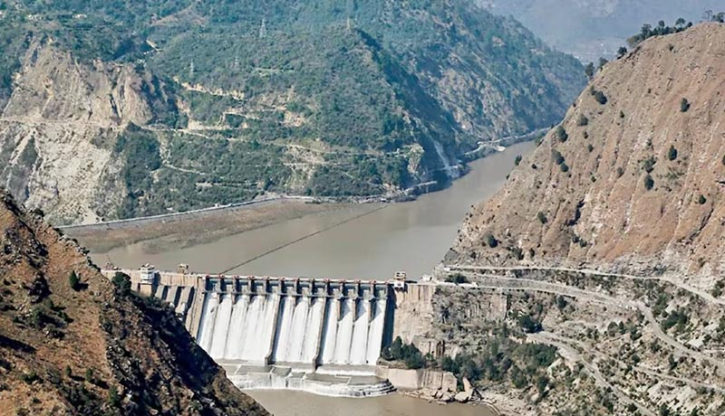India's Indus Treaty suspension leaves Pakistan at ‘acute' water risk

India’s decision to suspend the Indus Waters Treaty (IWT) earlier this year has pushed Pakistan into an acute water security crisis, according to the Ecological Threat Report 2025 published by the Sydney-based Institute for Economics and Peace (IEP).
The report, cited by NDTV, said the move gives India greater control over the westward flow of the Indus River and its tributaries, which form the lifeline of Pakistan’s agricultural sector. The suspension came after the April Pahalgam attack, which India condemned as a “barbaric act,” prompting New Delhi to retaliate with the treaty freeze.
Experts say the development could have grave implications for Pakistan, whose economy and food supply depend heavily on the Indus basin — with nearly 80 percent of its farmland irrigated by these rivers.
“Even short-term disruptions during critical irrigation periods could cripple Pakistan’s agriculture,” the report warned, noting that the country’s dam storage capacity covers only about 30 days of Indus water flow. “Any prolonged cut could have catastrophic consequences if not managed effectively.”
The IEP warned that even though India’s infrastructure does not allow it to completely stop the flow of water, minor interruptions or diversions could cause severe short-term shocks, especially during winter and dry seasons, when river levels naturally drop.
In May 2025, India carried out “reservoir flushing” operations at the Salal and Baglihar dams on the Chenab River without prior notification to Islamabad. The process, typically restricted under the treaty due to its potential downstream impacts, led to dramatic fluctuations in river levels — parts of Punjab’s Chenab River ran dry for days, followed by sudden torrents of silt-laden water once the gates were reopened.
Signed in 1960 with World Bank mediation, the Indus Waters Treaty had long been hailed as a rare success in India-Pakistan relations, enduring three wars and decades of political tension. Its suspension, analysts say, represents a dangerous escalation in the two nations’ already fraught ties, with potential consequences for regional stability, food security, and climate resilience across South Asia.
Environmental experts have urged both countries and international mediators to reopen dialogue on water sharing, warning that the disruption of the Indus system could exacerbate droughts, displace millions, and trigger a new wave of environmental migration in the region.
.png)









